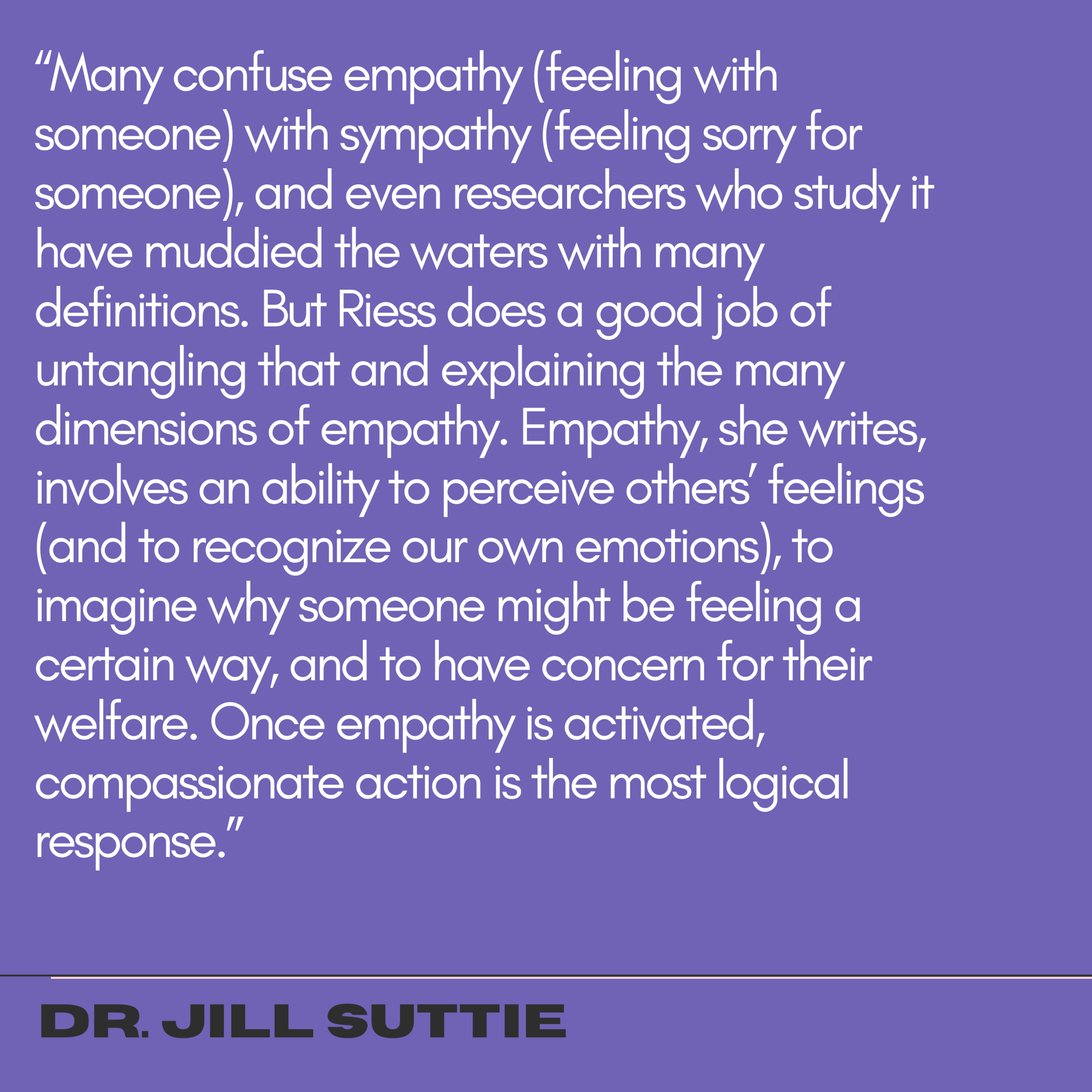
What Is empathy?
Some examples of situations where you experience empathy might be:
A Friend Fails a Test
Imagine you are a student and a friend in your class has just failed a major test or exam. Your friend is distraught because she studied really hard and still failed. Even though you got a good grade on this test, you remember what it is like to fail. You don't try to fix things for your friend. Instead, you make an empathetic statement like, "I'm so, so sorry about your grade. I know how hard you studied and how disappointed you must feel."
Patient in Pain
You work at a clinic and an older woman comes in complaining of knee pain. She has arthritis in both knees. There are many practical solutions you can offer to help, but you also choose to show empathy. You can do this by reflecting her situation in your tone and words, such as, "I know it must be really difficult to go about your normal life with this pain. Let's see what we can do to help."
Putting an Animal to Sleep
People can show empathy to other species too. Imagine your beloved dog is dying. You try to keep her happy and comfortable for as long as possible, but a day comes when she is in too much pain to enjoy her life. You take her to the vet and have her put to sleep. This is a choice made out of empathy.
Why is empathy Important?
Let’s put empathy in the context of racism in perspective:
You turn on the television and see breaking news announcing that a woman, Breonna Taylor, was killed in her sleep in Louisville. You feel sad about this, but tell yourself that Black people are accustomed to this type of news. You know that other people are working on change around this, and you post a passive meme about it on your Instagram in between selfies and video reviews about things you’ve recently purchased on Amazon.
As the week goes by, you forget about Breonna Taylor and life returns to normal. You visit your local Starbucks, watch reality shows on the Bravo network, and stress out about your kitchen renovation.
PAUSE.
About a month later, you turn on the television to see that the local news of Newtown, Connecticut has just seen a massive school shooting by Adam Lanza. You know families that lost their children, and are beside yourself about your highschool friend whose life was taken from them while shielding their students with their bodies. You are outraged, and demand change. Life, priorities, and safety will be different from this point moving forward.
What do you notice here? What differences exist between the two situations? Let’s break it down:
It has become normalized to see violence against Black people in the news. Living in an affluent, predominantly White neighborhood (re: take a moment to consider present-day segregation in cities like Chicago) can create a bubble that makes you see racism, but not feel affected by racism.
It often takes a moment of direct, personal impact to feel affected by something. Many of us are guilty of only taking issue up when we, or someone we care for, are hurting (If you have memory of it, go back to your emotions during the 9/11 tragedies).
Empathy is largely selective, and it’s been proven scientifically in a study done by Forgiarini, Gallucci, Maravita. Forgiarini et. al, write that by “measuring participants’ physiological arousal, we found that Caucasian observers reacted to pain suffered by African people significantly less than to pain of Caucasian people.”
As a white person, there is a high likelihood that you are living in the Comfort Zone concerning racism specifically….
….But have no fear! We’ve got a learning path for you to develop your allyship over time.
Watch this video by Brene Brown about empathy.
Did you know that empathy is something that you can improve if you work on it?
Use the acronym as outlined when you’re confronting racist situations that require empathy:
Dr. Jill Suttie writes about Helen Reiss (who focuses on empathy in healthcare, proving that empathy is important in all areas of our lives- ESPECIALLY when fulfilling your responsibility as an ally) who identified an easy way to be mindful of your allyship.
Suttie makes an important distinction that we often get wrong, noting that empathy and sympathy are similar, but very different. Focusing on how you relate to someone else is a key distinction, and says:
think about this:
Robert Bell Wilkins, previously of Stanford, wrote a piece for reflection to address the murder of George Floyd:
Wilkins compares the experience of a Black person with the everyday task of visiting the grocery store during the pandemic. We don’t know about you, but as white people, we can’t even begin to imagine what this experience would feel like. So, we encourage you to reflect and answer the following questions as a white person:
What everyday things do I have the luxury of feeling safe doing (like going to the grocery store)?
What is my emotional reaction to the following: “This is the black experience. That slight, inescapable anxiety that even the most mundane experiences can go very, very wrong for reasons outside your control.”








